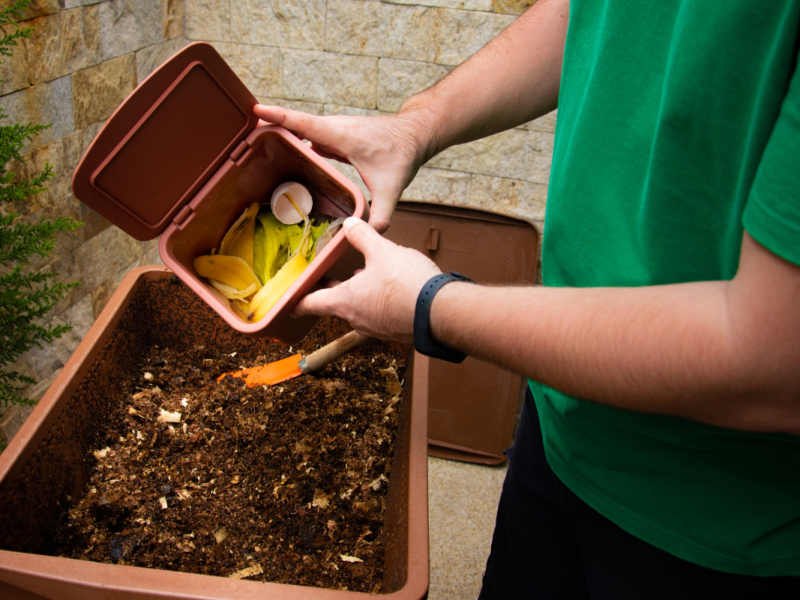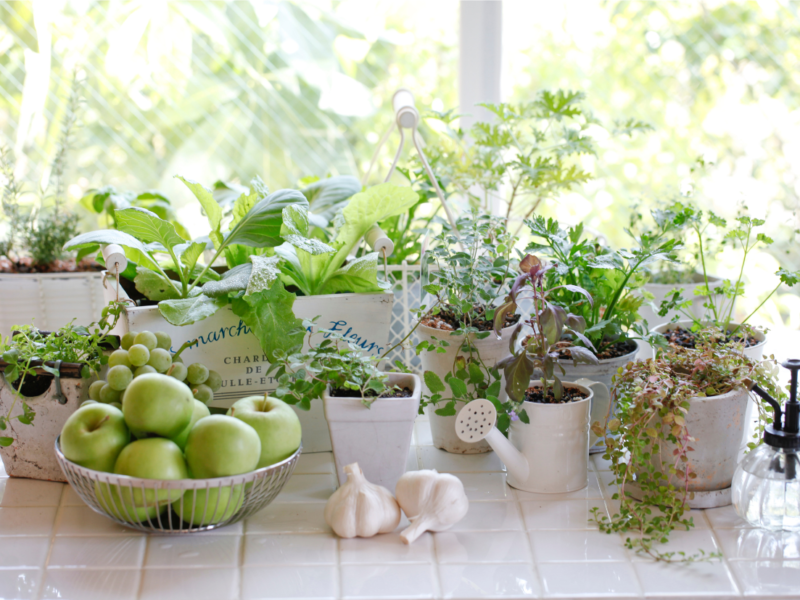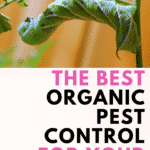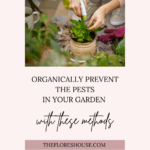Learn everything you need to know about organic pest control in your garden.
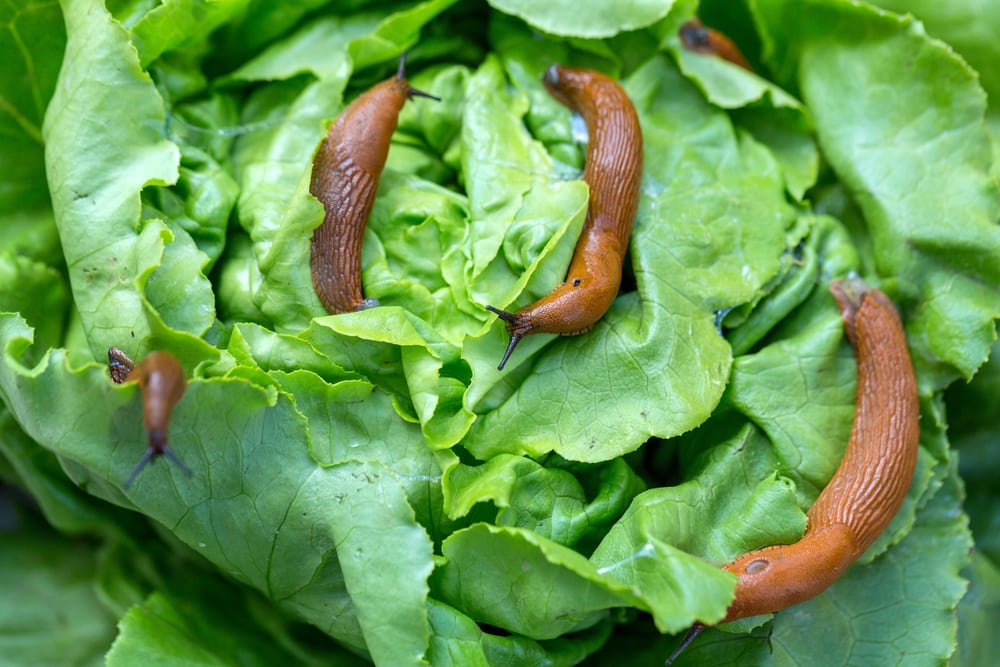
You want to grow healthy vegetables in your garden, but you also want to avoid using harsh chemicals that can cause damage to your family and the environment. Luckily, plenty of organic pest control methods don’t involve chemicals and pesticides, which will keep your garden safe from harmful pests without risking your or your family’s health. Here are some of the best organic garden pest control methods available today.
This post is all about the best organic pest control options for the garden.
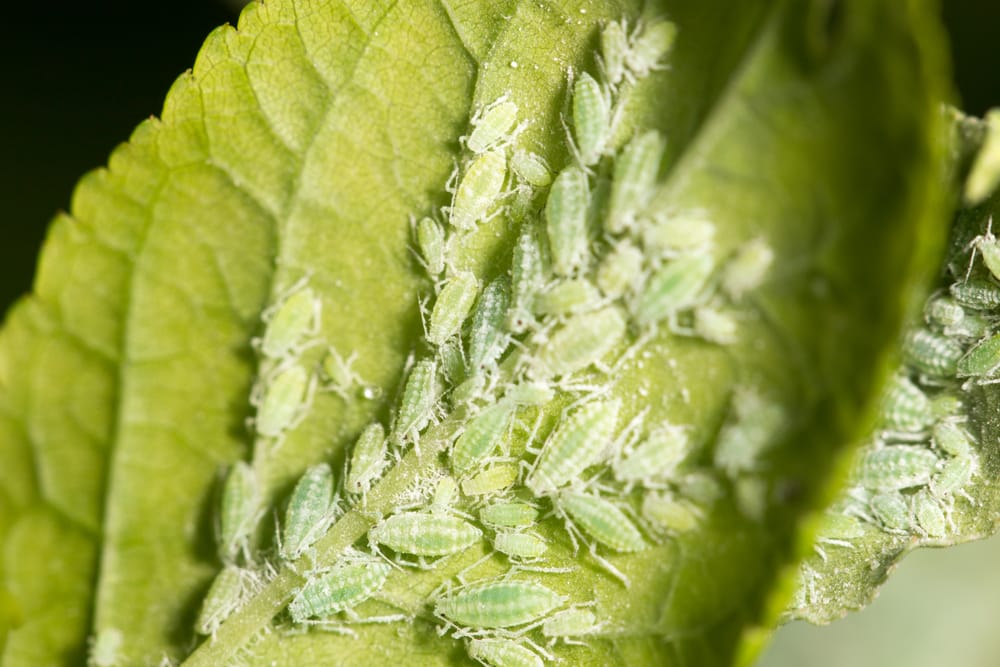
The Best Organic Insect Control Options for Your Garden
Not many gardeners want synthetic pesticides on their plants, especially if they’re growing organic produce. You can protect your garden from pests in many ways without using synthetic chemicals that aren’t good for you, your plants, or the environment.
This article will discuss some of the best organic garden pest control methods and how to use them to keep your garden free of harmful critters and insects.
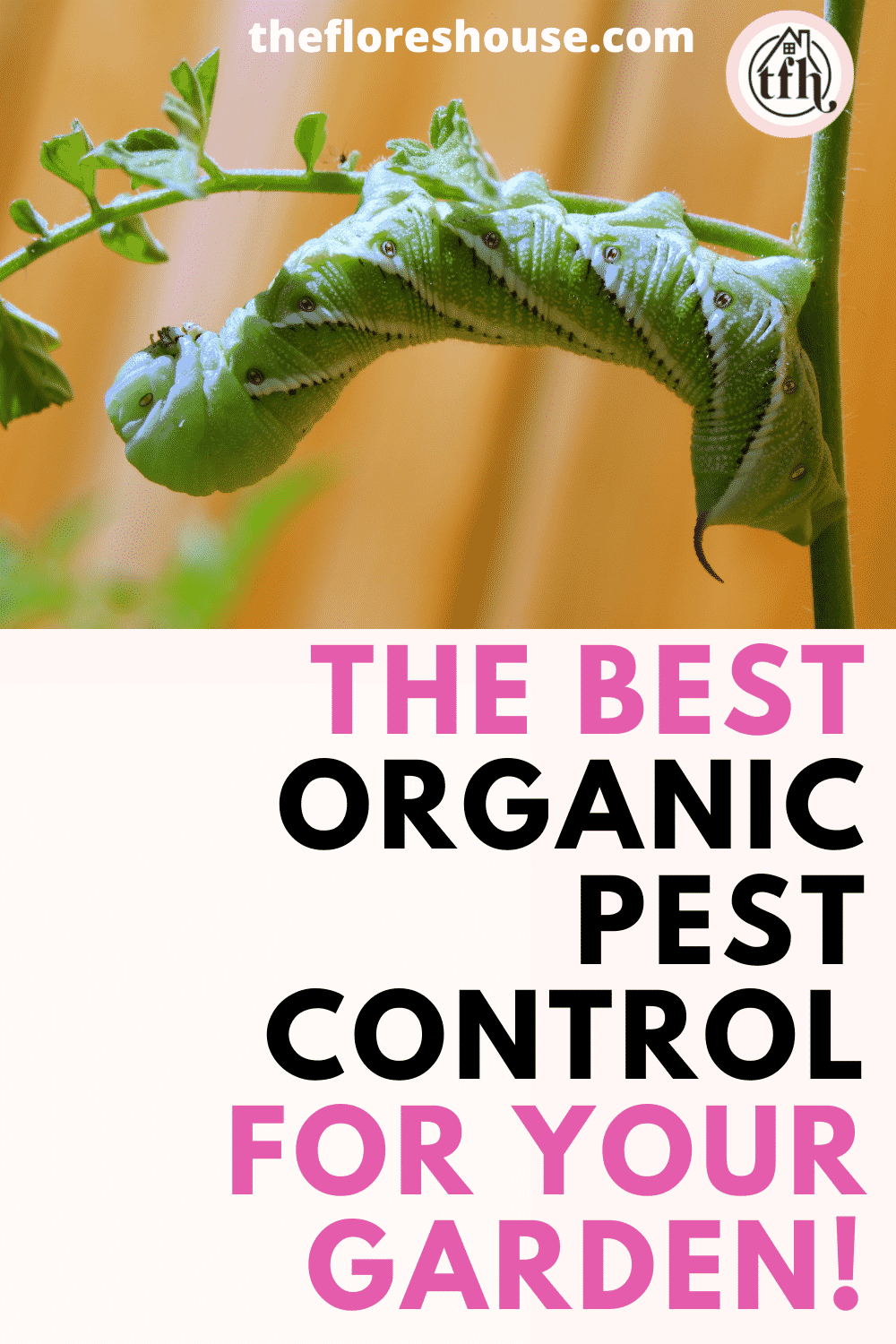
What Type of Organic Pest Control Do You Need?
While many people immediately resort to pesticides and spray repellents when dealing with pests, there are many ways to deter them organically.
The first step is determining what type of pest you’re dealing with.
Are they herbivores? Carnivores? Omnivores?
Next, know how these pests feed and breed so that you can find ways to deal with both their larvae and adult versions.
Pro-Tip: Use the app inaturalist to identify the insects quickly. Ensure it is an enemy before trying to rid it from the garden!
Go Away!! Common Pests in the Organic Garden
- Cats
- Aphids, White Flies, and Spider Mites
- Caterpillars and Hornworms
- Slugs
- Japanese Beetles and Potato Beetles
- Ants, Ticks, Fleas, and Earwigs
Please Stay!! Friends of the Garden
- Lady Bugs
- Wheel Bugs (Assassin Bugs)
- Praying Mantises
- Amphibians (Toads, Frogs, and salamanders)
- Snakes (Dekay’s Brown Snake and many others!)
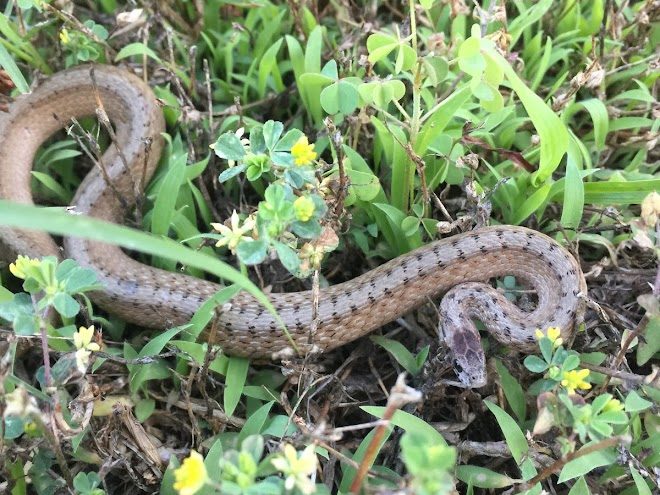
Organic Insect Control With Repellants
Natural repellents are one way to keep pests from your organic garden.
Natural Repellants for Organic Pest Control
- Citrus Peels – Orange, Lemon, and lime Peels
- Plants or Essential Oils of Lavender, Peppermint, Cinnamon
- Coffee grounds
Cats and many insects cannot tolerate citrus, cinnamon, peppermint, or lavender oils. However, these scents can be used in the garden as natural repellants.
Citrus peels can be placed alongside plants or anywhere you’d like to keep away the pests.
Sprinkle used coffee grounds and cinnamon around plants to keep pests from coming around.
Essential Oils are also helpful in the garden.
Try this recipe for a spray that can be used directly on plants and along paths to deter pests. This is a great mister for problem areas.
It keeps away snails, slugs, mosquitoes, ticks, chiggers, ants, beetles, moths and caterpillars, and white flies. This formula is a pest-repellant, anti-fungal, insecticidal soap that kills soft-bodied insects.
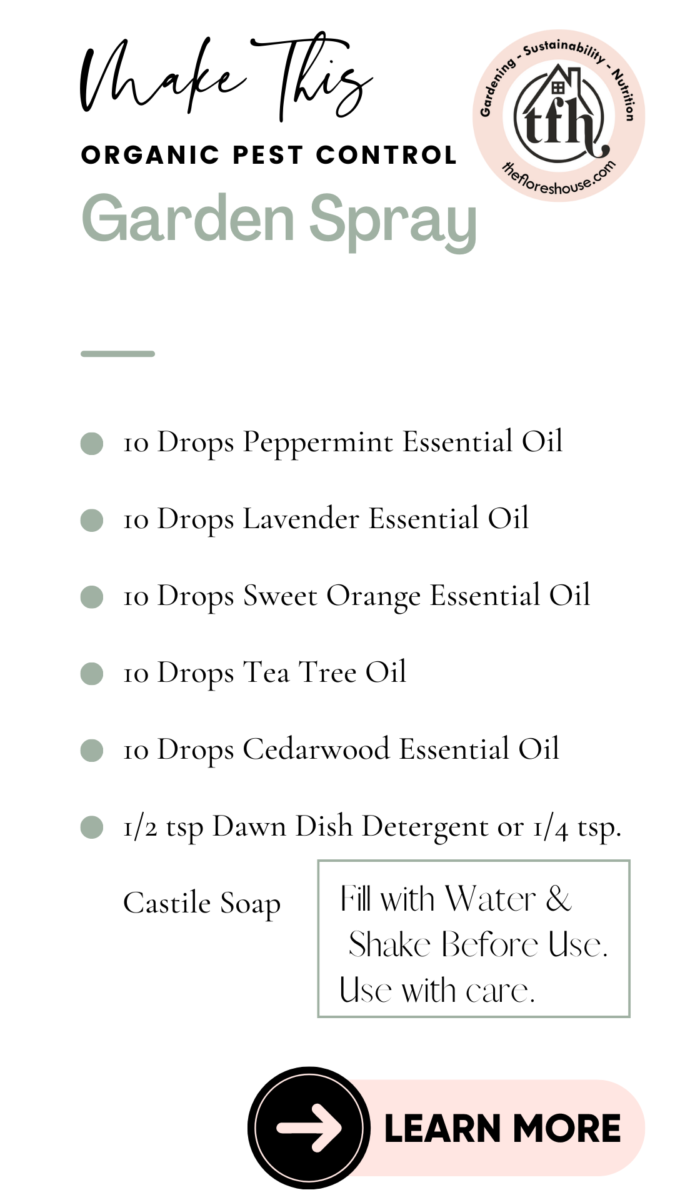
Garden Guardian Super Spray Recipe
It keeps away snails, slugs, mosquitoes, ticks, chiggers, ants, beetles, moths and caterpillars, and white flies. This formula is a pest-repellant, anti-fungal, insecticidal soap that kills soft-bodied insects.
Mix all ingredients in a 16 oz. Spray bottle and use 2-3x a week or after it rains.
Great on squash plants! I made This personal formula for use in my garden, and I cannot guarantee you will get the same results. Be careful not to spray on frogs and other amphibians.
- 10 Drops of Peppermint Essential Oil
- 10 Drops of Lavender Essential Oil
- 10 Drops of Sweet Orange Essential Oil
- 10 Drops of Tea Tree Oil
- 10 Drops of Cedarwood Essential Oil
- 1/2 teaspoon of Dawn Dish Detergent or 1/4 tsp. Castile Soap
Fill with Water and shake Before Use. Use with care.
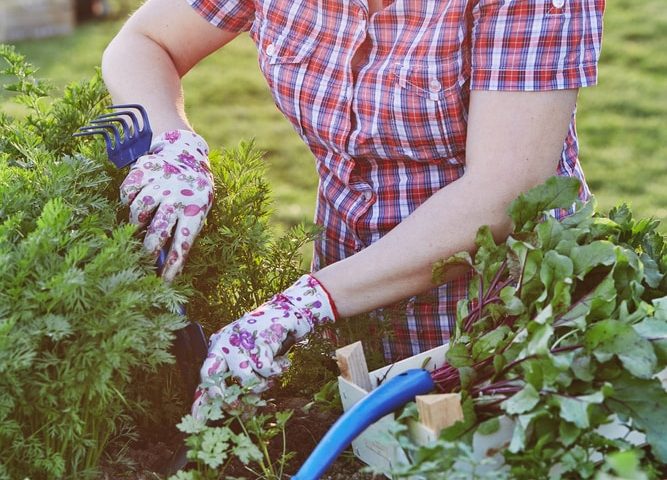
Nourish the Garden Ecosystem for Pest Control
For some reason, humans have always looked for innovative and, most often, unnatural ways to “fix” problems. However, opting to work with nature instead of against it in the garden has many rewards.
There are ways to support your garden’s ecosystem so that you will not need much pest control intervention.
Companion Plants
Planting herbs and marigolds throughout the garden can bring in the good insects that work hard to eat the annoying ones! Permaculture growers use companion planting as nature intends to make work easier and soil richer.
A happy ecosystem will deliver higher produce yields and require less fertilizers and weeding!
Rich Garden Soil
Good insects thrive in a garden with healthy soil. Building healthy soil through no-till gardening and planting a mix of companion plants can bring those helpers into your garden space.
Add compost and rabbit manure to the soil during the spring and fall for extra nutrients.
Another way to enrich the soil is to grow “chop and drop” crops like comfrey and buckwheat. These can be raised and chopped among the garden plants before they go to seed.
They will provide nutrients back to the soil if allowed to break down in the garden.
Growing your own organic and nutritious mulch is a great garden addition. Mulching protects plants, reduces weeds, and fortifies the soil with nutrients.
6 Soil-enriching Plants for Cover Crops and DIY Mulch
- Comfrey
- Red Clover
- Vetch
- Oats
- Sorghum
- Nasturtiums
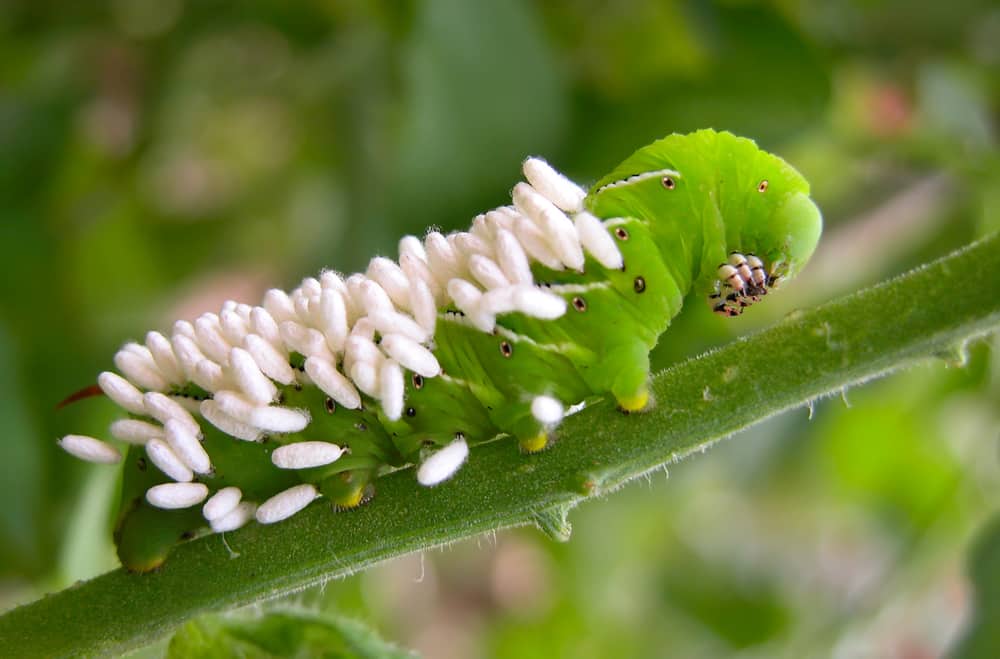
Roll Up Your Sleeves to Do Some Organic Pest Control
Unfortunately, sometimes we have to do dirty work in the garden. In the late summer, tobacco hornworms appear on the tomatoes, and human intervention is the only way to handle these destructive creatures!
While a soap-based spray could help, it will not work fast enough.
Take a black light outside at night and hunt! It isn’t a fun job, but removing these by hand will save your tomatoes! You will need to do this daily until they are gone.
Pro-tip: Hornworms cannot hurt you. Pick them off and place them in a dish detergent and water bucket. Have you ever seen one with white eggs on its back? Those are parasitic wasp eggs. You can leave that one on the vine! This is just one way nature works in your garden’s favor. Sometimes, we need to know when to get out of the way and let nature do its job!
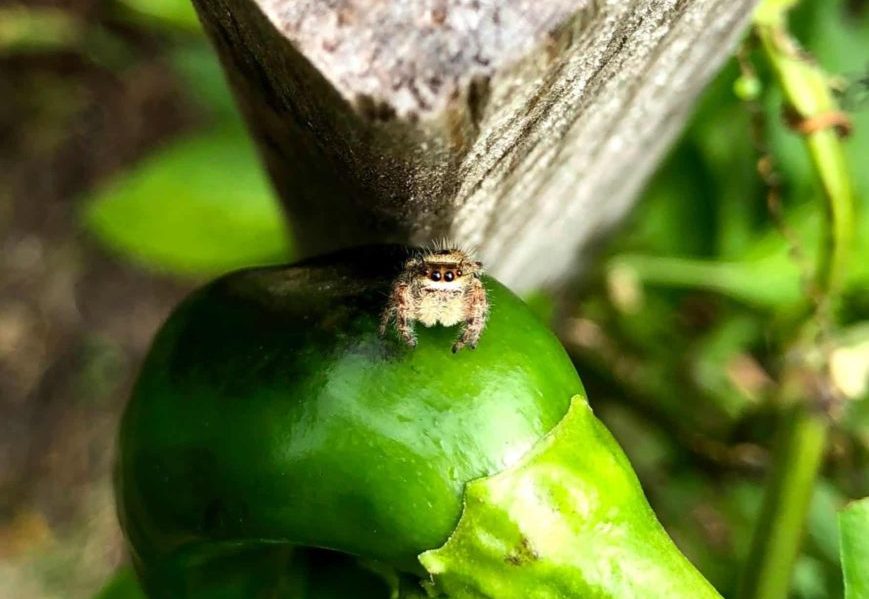
Friends of the Garden that Helps With Pest Control
Spiders and snakes are wonderful garden helpers. They aren’t the villains we think they are (so long as we stay out of their way)!
There are many species of spiders in the garden ecosystem. They love to feed on the insects that wreak havoc on the foods we grow.
It is essential to understand that some repellents and chemical sprays used for insect control can also harm the good guys. Be cautious when choosing which products to use and how much you apply.
Snakes seem sneaky and mysterious, but they have an essential job in the garden! Most species you will see around your plants are small and non-venomous. They eat slugs, insects, and snails. Never kill a snake in the garden!
Lady bugs and praying mantises are outstanding garden additions. They are so popular that you can even order them here!
They love aphids, the tiny soft-bodied bugs that feed on plants’ sap. However, praying mantises can also consume the good guys. For instance, they eat butterflies, honeybees, frogs, and spiders.
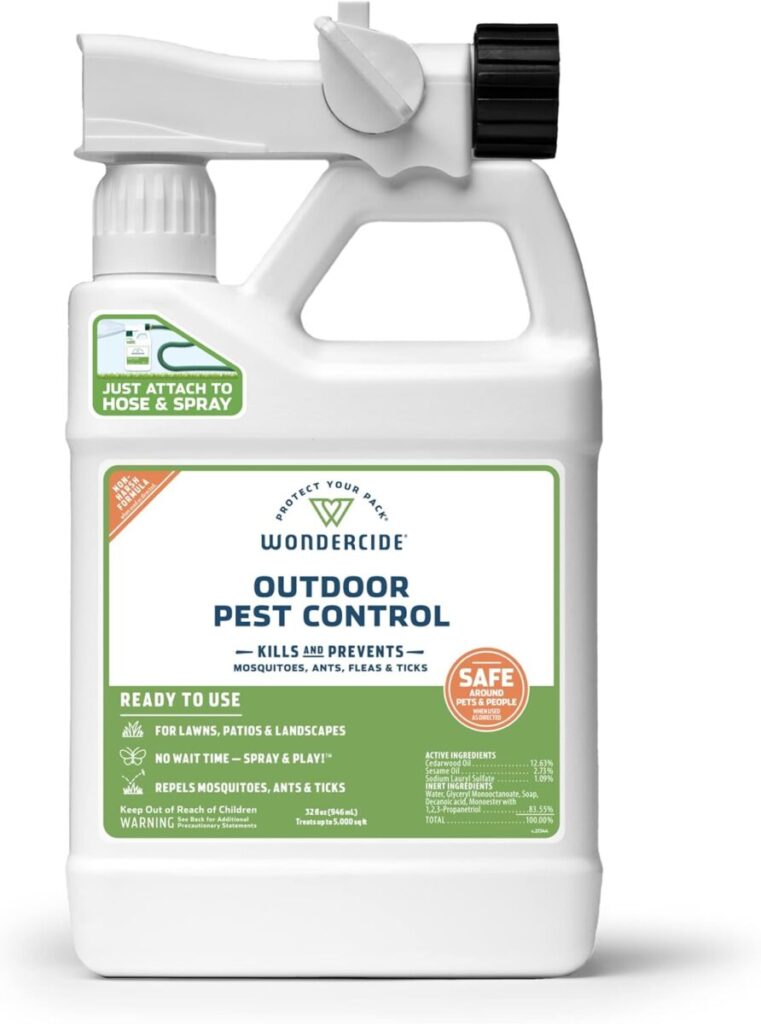
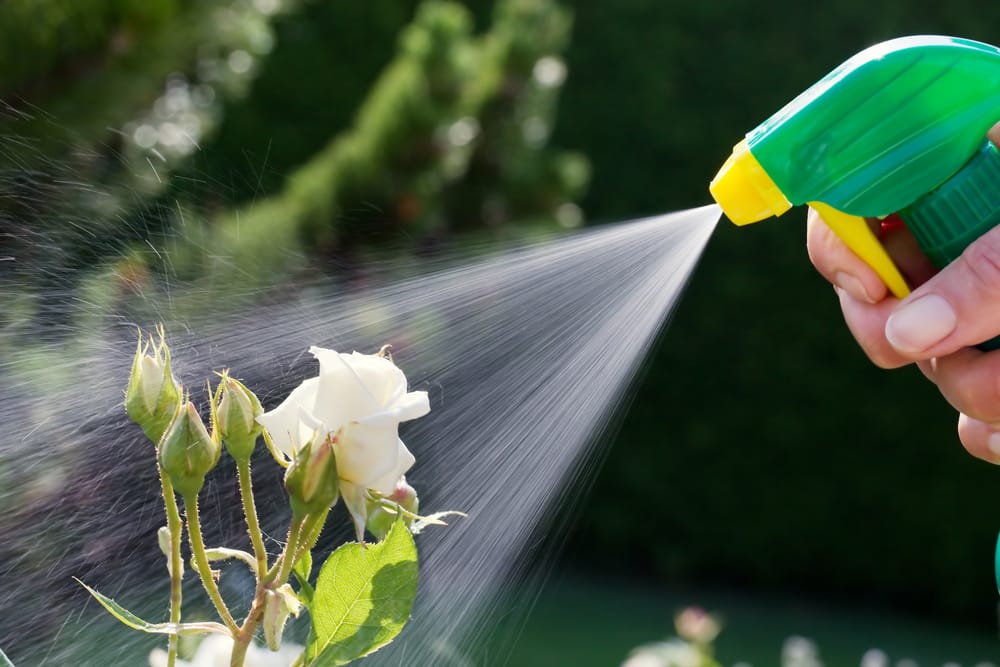
More Organic Pest Control Options
Here are more options to help control pests without harming the environment and our homegrown foods.
- Neem Oil
- Diatomaceous Earth
- Insecticidal Soaps
Does Neem Oil Kill Slugs?
Neem Oil is made from the seeds of a neem tree and has been used for hundreds of years to control pests and fleas. It can kill common garden pests such as aphids, spider mites, Japanese beetles, and more. It will deter slugs from young plants but not kill them.
Neem oil can also be used as an antifungal to treat powdery mildew, which can be seen on squash plants. The best plant neem oil is Bonide Captain Jacks, but you can also make your concoction with this pure neem oil!
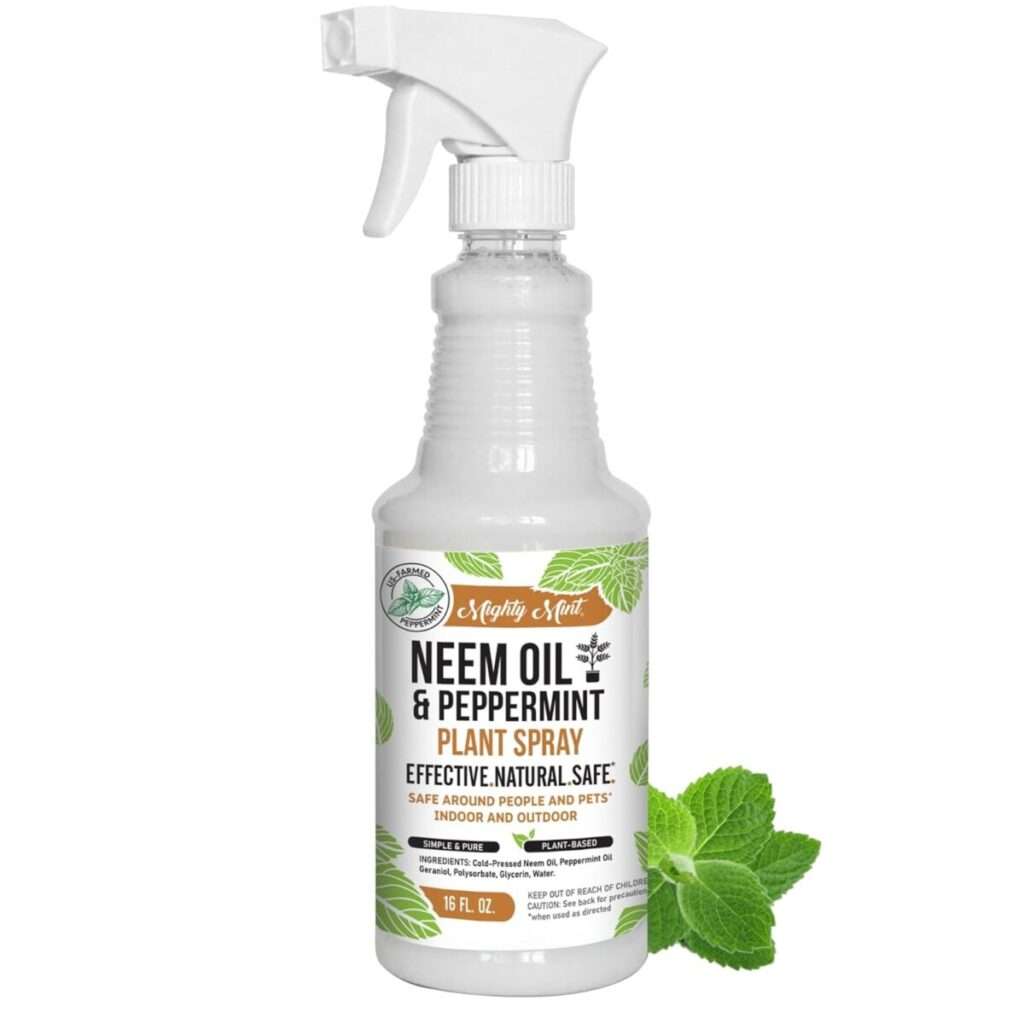
It is mild to humans and wildlife and doesn’t affect bees or pollinators. Neem oil penetrates the plant, and the insects must eat the plant to be killed by neem oil.
Diatomaceous Earth is a fine powder made from silica from fossilized diatoms found in sediment deposits in rivers, streams, and oceans. This product has long been used in the garden for pest control.
The silica composition in diatomaceous earth injures and dehydrates insects. It must be kept dry to work, so it must be reapplied after it rains.
Insecticidal soap is widely used in gardens for organic pest control. It works by suffocating the insect. The mixture can also penetrate cell membranes and dissolve the insect’s external oils.
This results in dehydration. Insecticidal soaps can also help wash away mildew and other fungal ailment on your plants.
This post was all about organic pest control options for the garden.

